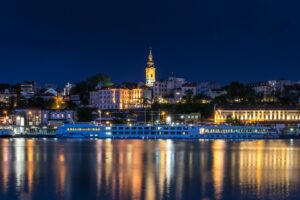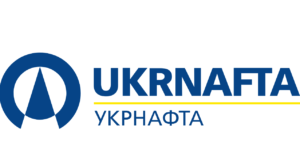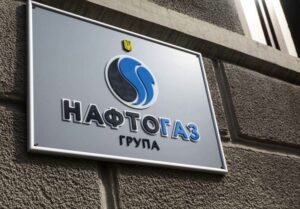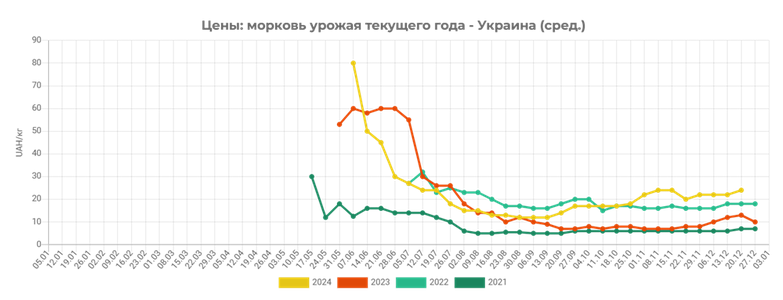
Serbia continues to attract both local and foreign investors due to its stable real estate market and attractive living conditions. In 2024, housing prices remain one of the most discussed topics due to high demand and limited supply, especially in the capital city of Belgrade.
Housing prices in Belgrade continue to rise. In popular central areas such as Vračar, the Old Town and New Belgrade, the cost per square meter ranges from 3,000 to 5,000 euros. In the less prestigious and more remote areas, prices range from 1,500 to 2,800 euros per square meter, making them more affordable for young families and those looking for budget options.
In Novi Sad and Nis, other major cities in Serbia, the cost of housing remains stable: a square meter costs an average of 1,400-1,800 euros, and in some suburbs prices can drop to 900-1,000 euros.
Serbia remains an attractive destination for citizens of many countries. Convenient location, a simplified process of obtaining a residence permit and an affordable cost of living – all this attracts new buyers to the real estate market. There is a shortage of housing in Belgrade, especially in prestigious areas. This stimulates the growth of prices for secondary housing and increases the cost of apartments under construction. Improved transport accessibility, construction of new schools and shopping centers make certain areas more popular, which also contributes to price growth.
Vera Egorova-Tolstaja, an expert at the Belgrade real estate agency Vidovstan, notes that in 2025 the real estate market in Serbia will continue to show growth, although the pace may slow down. According to her, the main forecasts include moderate price growth, an increase in new construction and continued high interest in Serbian real estate from foreign buyers. According to the expert, increased competition between construction companies will lead to more affordable options in the economy class segment.
For those planning to buy a home in 2025, it is important to consider the following recommendations. First, set a budget and take into account all additional costs: taxes, notary services, and agent commissions. Second, research the market and compare prices in different neighborhoods. Third, seek professional help: the services of realtors or legal advisors will help you avoid mistakes. Finally, consider new buildings, as buying a home under construction can be a profitable investment.
The real estate market in Serbia in 2025 is showing steady growth, remaining attractive to investors and new residents of the country. Despite rising prices, Serbia offers a variety of housing options suitable for different categories of buyers. If you are planning a relocation or investment, now is a good time to choose a property while the market is still in the process of forming new opportunities.
Source: https://news.relocation.rs/tseny-na-kvartiry-v-serbii-v-2025-godu-novye/

PJSC “Ukrnafta” on December 25 announced a tender for services of compulsory insurance of civil liability of owners of motor vehicles (MTPL).
As reported in the electronic public procurement system “Prozorro”, the expected cost of the purchase of services is UAH 2.722 million. Documents are accepted until January 6.
As reported, the winner of a similar tender a year earlier was IC “Arsenal Insurance”, whose offer amounted to UAH 1.907 million at an expected cost of UAH 2.750 million.

In 2024, Alliance Novobud (Brovary, Kyiv region) commissioned five houses in residential complexes in the capital and Brovary with a total living area of more than 61 thousand square meters.
“In 2024, we commissioned five houses in residential complexes in Brovary (Lavandovyi and Madison Garden) and Kyiv (Illinsky House clubhouse). Thus, we have built half a thousand apartments with a total area of more than 61 thousand square meters,” said Iryna Mikhaleva, CMO of Alliance Novobud, to Interfax-Ukraine.
She noted that two more complexes with an area of about 200 thousand square meters are under construction: Montreal House and Krona Park II. The developer plans to launch new projects and increase construction volumes next year.
“We are currently studying the prospects of several sites in Kyiv and the region,” said Mikhaleva.
According to her, this year the company managed to reach a more or less stable sales figure. In particular, sales under the eOselya program have increased: 80 deals have been concluded since its launch, including more than 40 in 2024.
The company named the main categories of buyers as military personnel who buy housing under the eOselya program or under alternative programs of the developer, displaced persons from other cities and traditional local buyers who improve their living conditions or buy real estate for relatives.
According to the expert, a typical buyer today is practical and rational. Important criteria for buying an apartment include the availability of shelters, underground parking lots, modern fire safety systems, and autonomous power supply systems.
In addition, some buyers prefer small apartments due to more affordable prices and maintenance.
Established in 2007, Alliance Novobud has commissioned more than 500 thousand square meters of housing: 36 houses and parking lots in the residential complexes Lesniy Kvartal, Zelenyi Kvartal, Krona Park, Madison Gardens in Brovary, as well as Illinsly House and Montreal House in Kyiv. More than 450 thousand square meters of housing are under construction, including one suburban project.

The consolidated profit of Naftogaz Group in January-September 2024 increased by one and a half times (by UAH 8.014 billion) compared to the same period last year – up to UAH 23.304 billion.
According to the consolidated financial statements published on Naftogaz’s website, its revenue for the first nine months increased by 20.3% (by UAH 33.577 billion) to UAH 199.195 billion, gross profit by 2.1 times (by UAH 33.862 billion) to UAH 65.104 billion, and operating profit by 28.4% (by UAH 7.17 billion) to UAH 32.375 billion.
“Naftogaz Group companies continue to operate smoothly despite all the current challenges. We ensure stable growth in hydrocarbon production and improve our financial performance. I am grateful to the entire team for these results,” said Roman Chumak, Acting CEO of the company.
Also, in January-September 2024, Naftogaz enterprises paid almost UAH 67 billion in taxes to the budget, the group supplies natural gas to almost 12.4 million households, continuing to supply gas at a fixed tariff under PSO.

Ukraine exported almost 1.7 million tons of corn as of December 23, and by the end of the month the total volume will exceed 2 million tons, despite problems with shipments at the beginning of the month that slowed down the pace of exports, according to the analytical cooperative “Start”, created within the framework of the All-Ukrainian Agrarian Council.
According to analysts on the UAC’s Facebook page on Thursday, corn prices are stable at $205-207 per ton on a CPT basis. They predict that corn has the potential to reach $210-215/ton in January. The key factor that may affect further price growth is weather conditions in Brazil and Argentina.
“The corn market is in a kind of “golden period”. In January, any importer who wants to receive supplies has to turn to Ukraine, as the US corn is already sold out. This creates conditions for sellers to dictate the price. However, it is important to remember that in February-March we may face competitive pressure on the European market due to cheaper U.S. corn,” the experts said.
They pointed out that Ukrainian corn remains the main player on the European market, while the US actively exports to Latin America and Mexico. However, the price difference between Ukrainian and American corn on the European market is about $10 in favor of American products.
According to forecasts, in January the market will be sensitive to news about the sowing campaign of the second harvest in Brazil and the condition of crops in Argentina, where there are already problems with moisture.
“Over the past 10 years, only twice the corn market has been stable in January and February without significant price fluctuations. Therefore, the probability of getting higher prices during this period is quite high. But in April-May, corn may become a scarce commodity, which will again create preconditions for price growth,” Pusk summarized.

Ukrainian producers of carrots continue to confidently increase selling prices for their products, according to analysts of the project EastFruit. Market operators explain the next rise in prices in this segment by the increased demand of wholesale companies and retail chains, which continue to buy these root crops for further realization.

Thus, only since the beginning of the current week carrots have grown in price up to UAH 23-30/kg, ($0.55-0.71/kg), depending on the quality and volume of the offered batches of products, which is on average 15% more expensive than at the end of the last working week.
Producers argue the price growth in this segment for several reasons at once. First of all, the upward price trend is associated with a noticeable reduction in the supply of substandard products, as supplies from unequipped warehouses have fallen to a minimum. At the same time, the demand for carrots remains quite active. It is also worth noting that some large farms are still holding back sales of this root vegetable of high quality in the hope of further price growth.
To date, carrots in Ukraine are already on sale on average 2.6 times more expensive than in the same period last year. At the same time, market operators note that the rise in prices has not contributed to a decrease in demand for carrots, so they do not exclude that next week farmers will make attempts to once again raise prices in this segment.
More detailed information about the development of the market of carrots and other fruit and vegetable products in Ukraine you can get by subscribing to the operative analytical weekly – EastFruit Ukraine Weekly Pro. Detailed product information is available here.